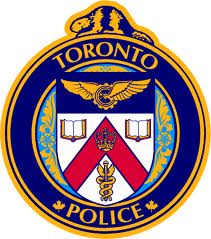Racial Profiling: Is Carding Black Youth Abuse of Power?
A young black teen leaves his apartment in his community housing complex. He has a few friends with him. He does not have a criminal record and has never been in trouble with the law. Suddenly a TAVIS police cruiser pulls up and two officers get out and approach the youth. One officer begins asking questions. Where do you live? Where are you going. Who are your associates and who are your other associates at school? Are your parents divorced or do they still live together? What is your weight and height? Your age. Your name.
He has two choices he believes. He can tell the officer that he does not have to give this information and turn and walk away or he can give the officer the information he seeks. Some may believe that giving the information is the best choice because then you don’t arouse the suspicion of the officers who must believe you are up to no good.
It’s just info right? What can anyone do with honest info?
Plenty.
The information TAVIS police collect, enters a data base that is accessed when youth require a criminal background check for employment purposes. This can impair their ability to find decent employment and shows that they have intersected the law. A clean background check is preferable. How does carding over 50 times – 50 intersections with law enforcement appear to a prospective employer on a criminal background check? This leaves youth explaining how a police officer wanted to talk to him 50 times and that doesn’t look good to the average employer who would likely assume the police had a valid reason to stop the youth. Many would ask, was he doing something he shouldn’t be? Even with reasonable explanations of the carding process, employers could feel unsure and wary.
But, there is another reason that carding is useful for law enforcement but not useful for youth who do nothing to cause entry into the justice system, yet find themselves in a position of defending themselves. The data obtained by police serves two purposes. To harass and make it known that you are being monitored and scrutinized for wrong-doing. And to build a data base of suspects that can be called on if they ‘fit’ the description. Or ‘fit’ the association. Now, a youth gets picked up and brought in on suspicion of committing a crime, because the data is already in the data-base and easily accessible.
For some, this may seem like an efficient way to profile people. And this could be considered harmless demographic information, except for one thing. Demographics collected on our age, postal code, income level do not generally lead to our incarceration. Demographics is a marketing tool used to profile the perfect buyer. Police racial profiling, 208 carding, of black youth results in black youth criminalized erroneously for acts they did not commit, at the very worst and at the very least, impairs employment opportunities. Encounters of this type with the law create fear, distrust, and a reluctance to coöperate with police in the future, leaving them without assistance from the police when they need it. Who then, will our youth turn to when they need protection? Perhaps, each other and a concealed weapon. If youth are carded and found with anything resembling a weapon, they will be charged and arrested as well, entering the justice system.
So, the question must be asked. If you frighten youth into running away, and not relying on police for help and you do live in a neighbourhood that could have criminal elements in the mix, and carry something for your own protection because there is no one to help, hasn’t the system set you up to fail? Hasn’t the system set you up for eventual incarceration? If you feel frightened enough to carry a weapon to protect yourself, knowing police are not there to help, might you use it if you needed to? If you use it, then you will go to jail. Case closed.
There is the alternative.
You could say you don’t need to give any information and walk away. Right?
When youth have tried this, they don’t get far. Police do not generally agree good-naturedly and walk away. In the priority neighbourhoods TAVIS is supported, welcomed and endorsed by Toronto Community Housing. Youth have told accounts where they have been grabbed, maneuvered, surrounded, assaulted into compliance.
Justice For Children and Youth, a legal aid clinic, supply credit card sized cards listing a youth’s rights if approached by police:
1. I can refuse to talk to police or answer question, unless I am in a bar or a cinema, driving a car or they say I broke the law. Must give name, date of birth and address or show ID. Do not have to say more.
2. I can say “NO” if the police ask permission to search me or my things. Saying “NO” does not mean I have something to hide.
3. I can leave unless I am being detained or arrested.
4. If I am being detained or arrested, I have the right to know why, and a right to speak privately to a lawyer without delay – even if I can’t afford to pay.
5. I have a right to know an officer’s name and badge number.
6. I can report an officer who violates my rights.
When youth have tried to exercise these rights, compliance by Toronto police is generally not the order of the day. In a recent piece, August 11th, 2012, in the Toronto Star, Jim Rankin and Patty Winsa report on stopping and documenting by Toronto Police. The Star obtained information through the freedom of information act that in each of the 72 patrol zones, black people were more likely to be carded than white people. Police performance measures such as disciplinary actions and promotions are tied to the carding activity and the,”average number of cards per officer was 109 in 2008. Of the top 15 carding officers, 13 were TAVIS officers who had a total card count of 17,460.” And, “the top carding officer documented 12 young men in 5 different patrol zones. All were either black or brown-skinned, and in each case, the nature of contact was listed as ‘general investigation’.”
At the Toronto Police Services Board meeting, August 15, 2012, Moya Teklu of the African Canadian Legal Clinic, argued in a deputation that the issue of carding, police brutality and racial profiling has been ongoing since 1979. She listed numerous reports highlighting the poor effects on youth when they are consistently carded and asked when this practice could change by giving a receipt of the encounter to the youth so they may be aware of why they were stopped, by whom, etc. The Toronto Police Accountability Coalition asked the same question, highlighting the same concerns.
November 1st, 2012 is when we may see some interim temporary resolution. After 37 years of waiting for a resolution to the 208 carding and racial profiling of black youth…I won’t be holding my breath.
The Justice Is Not Colour-Blind Campaign does not ask when changes to carding with issuing receipts to youth will begin. JINCB asks when this form of racist hate crime called racial profiling and carding will be stopped. Period. Odion Fayalo of JINCB stated, ‘The argument of contact receipts put forth by folks such as TPAC and ACLC yesterday may be well-intentioned but it is misguided considering it leads us down a path to accommodation under white power. It does not actually overturn
our relationship with white power. In this case, white, police-state power! ”
Odion argues, “The solution lies in uniting and building a movement to change public policy and social relations. Only an engaged and energized movement can make change. We have to build the movement. We have to become the movement. JINCB and other progressive organizations must not allow business to continue as usual at the TPSB. Business has to be ceased literally, until our demands are met. It is the carrying out of business that allows the police to control blacks on a day-to-day basis. It is public policy to control black people. After all, its big business to lock up black folks!”
What are the chances that a black youth not in conflict with the law, could avoid getting carded by remaining calm and stating his rights if he is walking in his neighbourhood? Watch this video below by Chief Bill Blair who discusses a youth’s right to say NO, then recants that right later in the video. Seems like Blair is saying youth do have rights but do not have the right to exercise them. What do you think? Click on the link below to view the video by Toronto Chief of police Bill Blair.
http://www.torontopoliceguide.ca/english.html
Justice Is Not Colour-Blind Campaign:
1. We want an immediate end to all racist programs, policies and practices that
target black people, which include but are not limited to: TAVIS, carding and
racial profiling.
2. We want an end to the practice of sweeps and raids
of black people, which have been used under false pretexts, in order to
criminalize the community.
3. We reject the notion of justifiable
homicide and want the families of all black victims of police killings, to be
fully compensated by the Province of Ontario, for their pain and suffering,
whether or not there are civil actions pending.
4. Given the documented
physical, psychological, mental, economic and other injuries resulting from
being racially profiled, we demand the criminalization of the practice of racial
profiling. We believe that racial profiling is a tenet of systemic racism, which
is institutional racism. Consequently, we want the immediate arrests and
vigorous prosecutions of all police officers in Ontario that have killed black
victims.
5. We demand an immediate end to the incestuous relationships
between the Attorney General’s ministry, SIU, and police services. We want the
SIU to be a truly independent and forceful agency, staffed with civilians from
top to bottom, and throughout. Furthermore, we call for an independent body to
be organized that can hold the SIU responsible. This body must be made up solely
of community members with substantial disciplinary powers to keep the SIU truly
accountable.
—
Justice IS
NOT Colour-Blind Campaign
Mobilize Our People, Maximize Our
Power!
Email: justicenotblind@gmail.com
Facebook: https://www.facebook.com/groups/justicenotblind/
Twitter:
@justicenoblind
